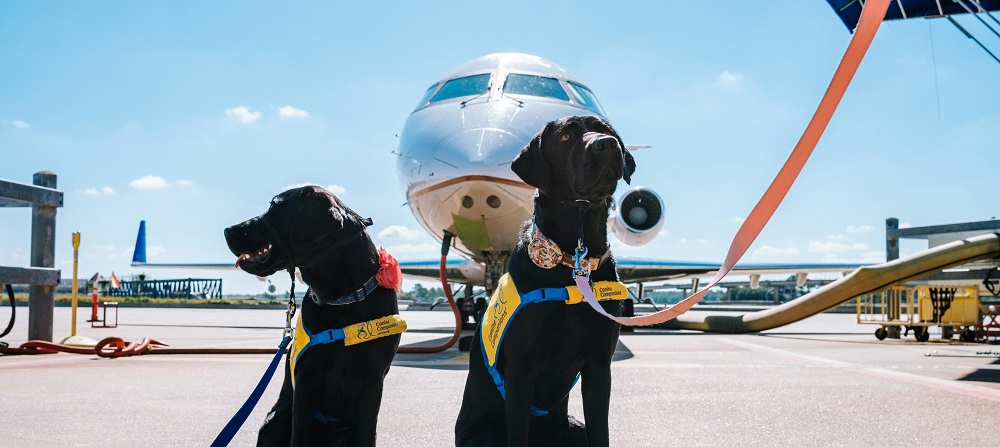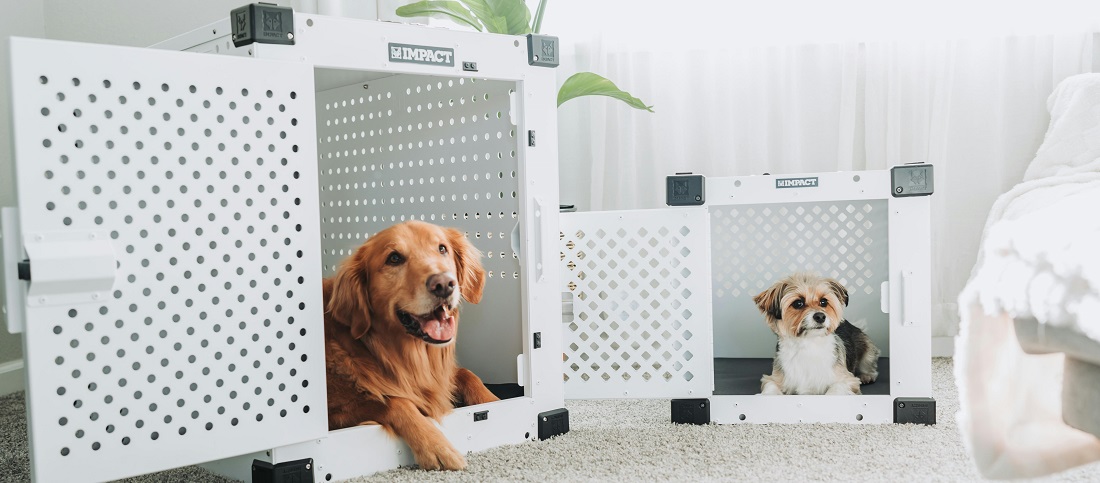This article was supplied by Pet Cheri, a pet relocation agency that offers a worry-free experience using their expertise to ensure every detail is covered. Whether you need support with travel preparation, settling into French life, or regular pet care, their combined services are unmatched.
Relocating to a new country is an adventure, and bringing your beloved pet along makes it all the more special. But let’s face it: the process can be daunting. From navigating paperwork to ensuring your furry friend’s smooth transition, there’s much to consider.
Fear not – this guide is here to make the journey informative, enjoyable, and stress-free. Whether you have a playful pup, a curious cat, or even a ferret with a flair for travel, this comprehensive roadmap has you covered.
Planning ahead is the golden rule. Ideally, you should start organising your pet’s relocation at least four to six months in advance. This allows ample time to sort through requirements, avoid last-minute hiccups, and give your pet (and yourself) peace of mind.
Hiring a pet relocation service can help you navigate the process and help reduce feelings of overwhelm. These companies can help with everything from documentation to transport logistics, like organising flights and finding the right crate for your furry friend.
Pet entry requirements to France

If your pet does not have an EU Pet Passport, you’ll have to adhere to a few entry requirements for France. Below are the entry requirements for pets coming into the EU without a regional pet passport:
- Customs declaration: Upon arrival, pets from non-EU countries must be declared and presented to Customs for document and identity verification.
- Number of pets: Non-commercial travellers may bring up to five pets per adult.
- Minimum age: Pets must be at least four months old and possess a valid health certificate.
Certain breeds, known as Category 1 dogs, are prohibited in France. These include non-pedigree Staffordshire Terriers and Mastiffs, among others.
Category 2 dogs (e.g. pedigree Staffordshire Terriers, Tosas) require extra protective steps, including:
- Registration with the French Kennel Club (SCC)
- Behavioural evaluations by authorised veterinarians
- Owner’s certification of aptitude
- Liability insurance for potential damages caused by the dog
If your dog’s breed is mixed with a Category 1 type, a vet’s statement (translated into French) is mandatory.
Step-by-step guide to pet relocation in France
Three months or more before departure, you must ensure your pet has an ISO-compliant microchip. This tiny device is the key to official identification in the EU. Tattoos are acceptable if they were applied before July 3, 2011, and remain legible.
A rabies vaccination is non-negotiable. The vaccine must be administered at least 21 days before travel and be valid upon entry. A one-year rabies vaccine simplifies documentation and avoids any lapses in certification.
You’ll also need to ensure your pet has a rabies antibody test, which must be conducted 30 days after vaccination and at least three months before travel. It ensures your pet’s immunity meets EU standards. (Not required for pets from rabies-free countries like the USA, Canada, and Australia.)
Within 10 days of moving your pet to France, you’ll need to visit an accredited vet to obtain an EU-compliant health certificate. This document will remain valid for 10 days and must include proof of rabies vaccination.
Travel day logistics for moving your pet to France

Check your airline’s rules regarding pet travel and book your pet’s spot early (at least 72 hours in advance).
Airlines typically offer three options:
- In-cabin: for small pets under 6 or 8kg.
- Cargo: pets travel in the hold on the same flight.
- Licensed Pet Transporter: ideal for large pets or complex itineraries.
Invest in an IATA-approved crate. To make it more inviting, place the crate in your home weeks before travel to familiarise your pet. Add toys and a cosy blanket with a familiar scent.
Ensure the crate has absorbent bedding to handle accidents. Avoid sedatives, as these can disorient pets and pose health risks during air travel. Instead, focus on crate training to reduce anxiety.
Upon arrival in France
1. Customs check: Present all required documentation, including the health certificate, vaccination records, and rabies antibody test results (if applicable).
2. Registration: Schedule a visit to a French veterinarian within one week. They’ll register your pet’s microchip with ICAD (Identification des Carnivores Domestiques) and handle any additional paperwork.
3. EU Pet Passport: While in France, obtain this valuable document. It simplifies travel within the EU and ensures compliance with local regulations.
To ensure that the move is safe and fun, start crate training months ahead of travel. Reward your pet for exploring the crate, and never use it as punishment.
Whenever possible, choose direct routes to minimise your pet’s stress. Bring extra food, water, and any medications they may need during the journey. Pets are highly attuned to your emotions. A calm and positive attitude will reassure them during travel.
Useful links
Living in France with your pets
Welcome to France! The adventure doesn’t stop at arrival. Take these steps to help your pet adjust to their new surroundings:
1. Explore together. Familiarise your pet with your new neighbourhood. Walks are a great way to help them feel at home.
2. Routine is key. Maintain consistent feeding and exercise schedules to ease the transition.
3. Socialise in your surroundings. Introduce your pet to local parks and, if possible, other pets. France is a pet-friendly country, and your companion will enjoy the social scene.
Bringing a pet to France involves a mix of anticipation, excitement, and a fair share of paperwork. By taking a few steps before moving your pets to France, you can make the process as seamless as possible for you and your pet.



